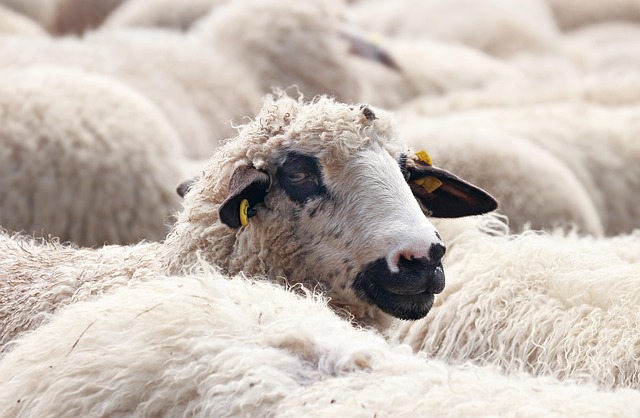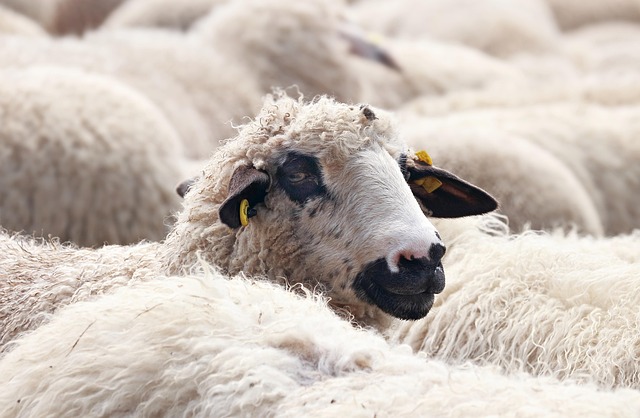
Amprolium for Sheep and Goats: Effective Coccidiosis Control Guide
Healthy sheep and goats point towards good husbandry. They are the backbone of any working flock. Among the many disease risks small ruminants face, coccidiosis is one of the most devastating. An intestinal parasite that invades quickly, coccidiosis causes diarrhea, weight loss, stunted growth, and in severe cases, death. Once established, it spreads very rapidly in a herd, especially in young or stressed animals.
One of the most reliable protections against this costly disease is amprolium for sheep, a proven treatment that works by blocking the parasite’s ability to absorb and utilize thiamine (vitamin B1), basically shutting down its life cycle before it can cause further havoc.
In small flocks, outbreaks will take place shortly after hard rain, when pens are wet for days. Acting quickly with amprolium for sheep when loose stools start will prevent losing a number of lambs or kids.
In this guide, we’ll cover how amprolium for sheep and amprolium for horses can be used to combat coccidiosis, the correct dosages, essential safety tips, and where to source top-quality products to keep your animals healthy year-round.
Understanding Coccidiosis in Sheep and Goats
Coccidiosis is caused by Eimeria protozoan parasites. It can spread quickly in damp, crowded environments, such as barns, feedlots, and intensive grazing systems. Young animals are most at risk, but infection also occurs in adults and they can pass on the infection without showing signs.
Some common presentations of coccidiosis are:
- Diarrhea (sometimes with mucus or blood)
- Weight loss and decreased appetite
- Lethargy and dull coat
- Stunted growth in young animals
If left untreated, coccidiosis can cause irreversible damage to the gastrointestinal system and drastically reduce production.

Why Use Amprolium in Sheep and Goats?
Amprolium for sheep is an effective, low-cost, and widely available coccidiosis medication. It can be safely used in young lambs and kids when administered according to the manufacturer’s instructions and is frequently used in treatment and prevention regimens.
Similarly, amprolium for horses is formulated to kill the same type of protozoan parasite and is a valuable cross-species parasite control option with the approval of a veterinarian.
Farmers who pasture-rotate, as well as enhanced drainage within overgrazed fields, always find many fewer recurrences. Medication is most effective when coupled with environment modification.
Dosage Instructions for Amprolium
The right dose of amprolium for sheep will also be determined by whether it is for prevention or treatment:
Prevention:
- 5 mg per kg body weight daily for 21 days
Treatment:
- 10 mg per kg body weight daily for 5 days
Key Points:
- Use the directions on the label or your veterinarian’s recommendation.
- Maintain unlimited supply of clean, fresh water.
- Do not overdose, as this causes thiamine deficiency in animals.
Having a weight tape or digital livestock scale at your fingertips assures you of accurate dosage. Weight guessing leads to underdosing and reduced efficacy.
Amprolium for horses comes with different dosage levels of rates, therefore never interchange products without consulting your vet.
Buying Quality Amprolium and Related Products
When buying medication for livestock, always employ approved means so that you can be sure of safety and efficiency.
We recommend considering:
- ToltrazurilShop.com – a reputable seller of amprolium for sheep, amprolium for horses, and other anti-coccidiosis remedies.
- Licensed veterinarian pharmacies with a proven track record.
If you are looking for a treatment which is specifically for protozoa, you may be interested in finding out where to buy toltrazuril or buy toltrazuril for other affected animals of coccidiosis.
Amprolium vs. Toltrazuril for Coccidiosis Control
While amprolium for sheep is extremely effective, farmers would rather use toltrazuril for coccidia in the event of severe outbreaks as it is able to target different life stages of the parasite. Baycox toltrazuril and toltrazuril coccidia are especially easy to administer in young animals for fast recovery.
In the event that there are multiple species on the same farms, it would be advantageous to keep both amprolium for sheep and amprolium for horses on hand to treat different parasite issues early in the course of time.
Safe Use of Amprolium
To use amprolium for sheep and amprolium for horses safely:
- Keep the product in a cool, dry place and out of sunlight.
- Carefully measure doses to avoid toxicity.
- Do not combine with feed products that suppress water intake as this could diminish the effectiveness of the drug.
- Observe the animals that are medicated if noticing any side effects.
- Keep out of the reach of children and other non-target animals.
If you need bulk stock for your farm, seek quality suppliers selling amprolium for sale at affordable prices.
Practical Example from the Field
For most small farms, a prophylactic coccidiosis program would include amprolium for sheep for weaned lambs and amprolium for horses in equine facilities with high parasite exposure. Farmers might supplement these with rigorous sanitation measures like frequent pen cleaning and dry bedding to minimize the environmental parasite burden.
According to Cornell University College of Veterinary Medicine, coccidiosis is treatable with adequate medication like amprolium for sheep and amprolium for horses, in combination with sanitation, in order to guarantee the long-term health of the herd.
Conclusion
Coccidiosis is a sheep and goat herd killer if not controlled and treated early with amprolium for sheep, but with timely treatment you can keep your animals healthy and productive. For prevention or treatment purposes, amprolium for sheep is a safe proven product when used properly.
For farms which keep multiple species, adding amprolium for horses with toltrazuril for coccidia-based treatments gives complete protection from multiple parasitic dangers. Maintain the precautionary measures and follow the restrictions and buy only from ToltrazurilShop.com.
